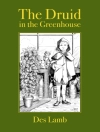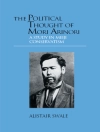In ‘Pink and White Tyranny, ‘ Harriet Beecher Stowe presents a poignant critique of societal norms surrounding gender and the constraining dynamics of marriage in the Victorian era. Utilizing her signature narrative style that blends sharp social commentary with deeply human characters, Stowe crafts a tale that reflects the frustrations of women trapped within the confines of domesticity. The novel interweaves personal experience with broader themes of social justice, illuminating the often unrecognized struggles faced by women in an era marked by strict gender roles and expectations. Stowe, an influential abolitionist and a crucial voice in American literature, drew from her extensive knowledge of societal issues and personal observations as the daughter of a prominent minister. Her previous works, most notably ‘Uncle Tom’s Cabin, ‘ established her as a formidable advocate for social reform, and ‘Pink and White Tyranny’ builds upon her dedication to highlighting the injustices faced by marginalized groups. Stowe’s own experiences as a wife and mother infused the narrative with a realistic portrayal of the complex emotional landscape of women’s lives during her time. This compelling novel is essential for readers seeking to understand the historical foundations of feminist thought and the evolution of women’s rights. Stowe’s insightful examination of gender relations continues to resonate today, making ‘Pink and White Tyranny’ a must-read for those interested in the intersection of literature, gender studies, and social reform.
Sobre el autor
Harriet Beecher Stowe (1811–1896) stands as one of the most influential American authors of the 19th century. Renowned primarily for her pivotal novel ‘Uncle Tom’s Cabin’, Stowe’s literary endeavors significantly impacted the national attitude towards slavery, bolstering the abolitionist movement in the pre-Civil War United States. Born in Litchfield, Connecticut, Stowe was the daughter of a prominent minister, Lyman Beecher, and sister to several influential Beechers, including clergyman Henry Ward Beecher. Her upbringing was steeped in a strong tradition of religious activism, which invariably shaped her writings. Stowe’s keen awareness of social injustices and her commitment to reform are also evident in other works, such as ‘Pink and White Tyranny’, a satirical novel which explores the folly of marrying for social status rather than love and ironically critiques the domestic ideals of her time. Throughout her literary career, Stowe mastered the use of fiction as a medium for social change, creating complex characters and emotive narratives that challenged the status quo. Her work is characterized by a blend of vivid storytelling and moral gravity, positioning her as a critical figure in American literature and a pioneer in the use of literature as a means of influencing social policy. Her literary accomplishments extend beyond the social impact and continue to be subjects of scholarly discussion, reflecting the enduring relevance of her themes and the potency of her literary style.












